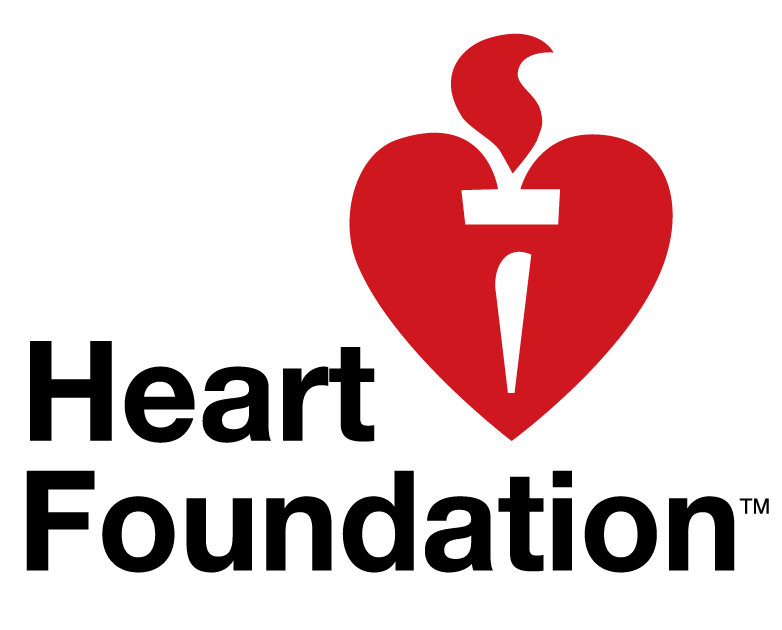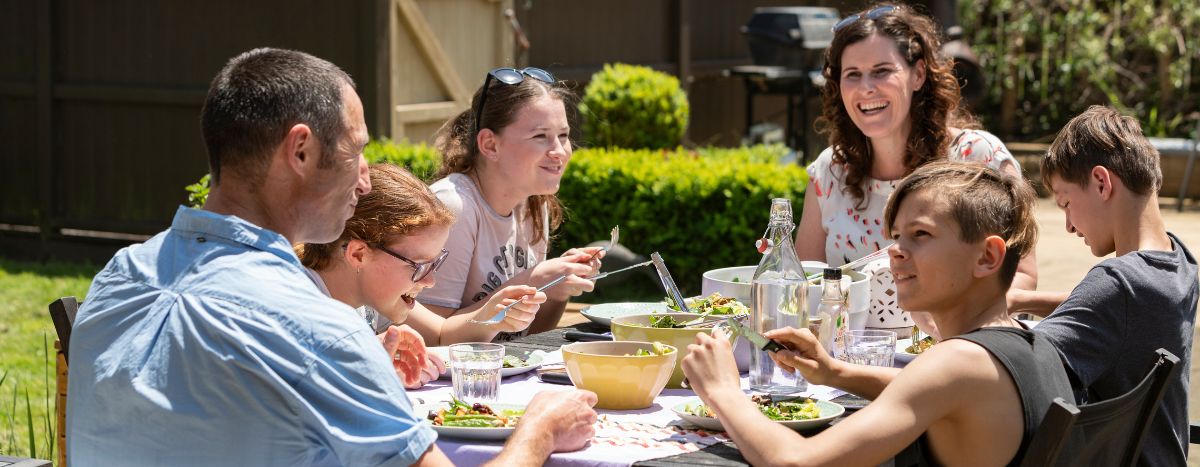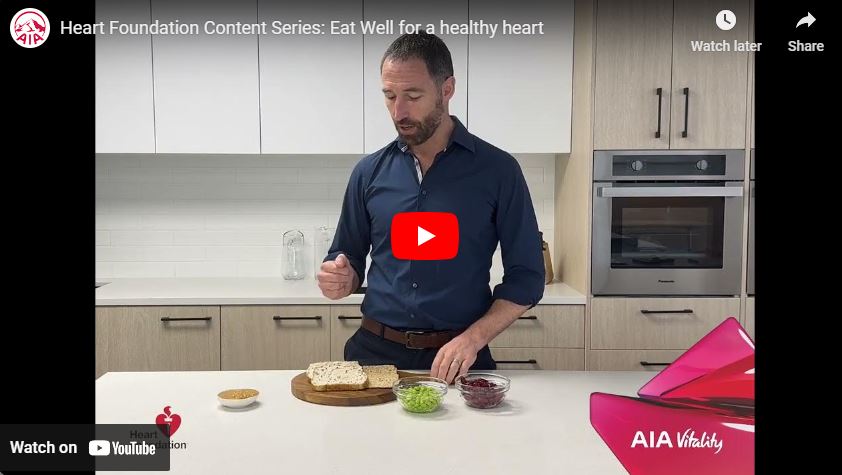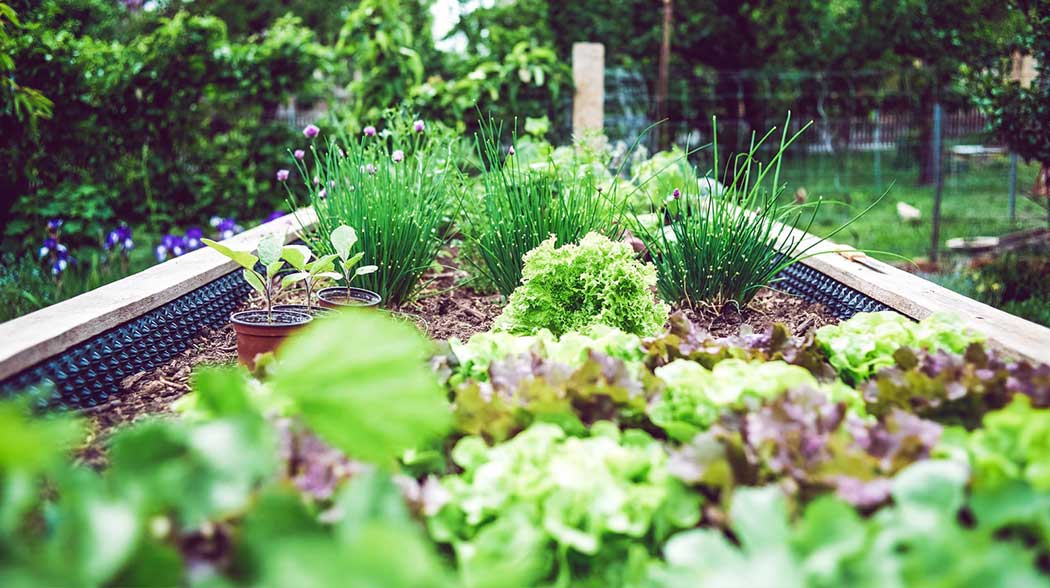Food has direct links with many risk factors such as blood pressure, cholesterol levels and managing a healthy weight. However, food doesn’t just fuel us and impact our health; food also comforts us, brings us happiness, connects us all - and can taste amazing.
What is heart-healthy eating?
A common myth is that we think there is a single best way of eating for our hearts.
There are a range of dietary patterns that have been shown to be heart-healthy. From lower fat/higher carbohydrate intakes to higher fat/lower carbohydrate intakes, and across a range of different cuisines (Middle Eastern, Japanese, or Mediterranean).
A common element through many of the world’s healthiest diets is that they base most of what they eat around plant foods such as vegetables, wholegrains, fruits, nuts, seeds and healthy oils. There’s also often an emphasis on the quality of these foods.
For more information visit: Which diet is right for you
Some top foods for a heart-healthy boost
Try to focus on the positives and think about all the foods you can eat every day. We spoke with Heart Foundation’s Chief Advisor, Food and Nutrition, Dave Monro, about some great foods to include in your diet to give yourself a heart-healthy boost.
Nuts and seeds
Nuts and seeds may be small, but they are packed full of goodness. They provide us with fibre, plant protein and healthy fats, which are all beneficial for heart health. If you eat a range of nuts and seeds, you’re more likely to benefit from all the different nutrients they can provide.
Dave’s top tip: “Peanut butter counts! Many nut and seed butters have undergone very little processing and are an affordable way to get nuts and seeds into your diet. They are a more nutrient-rich option when compared to other spreads like jam or honey. Try serving nut butters with fruit slices as a snack or adding it to your breakfast bowl or smoothie.”
For more information check out: Seven ways to eat more seeds
Whole grains
When eaten as part of a heart-healthy diet, a high intake of whole grain foods can reduce your risk of heart disease by up to 30%. The great news is there are more and more options on supermarket shelves than ever before. Aim for at least three servings of whole grain foods per day.
Dave’s top tip: “Replace as many as possible of the refined grains you eat with whole grain options. Look at affordable swaps to foods you currently eat. For example, making the switch to whole grain breads, brown rice, grain-based breakfast cereals or selecting more grainy crackers.“
For more information check out: How Can I Eat More Whole Grains?
Legumes (beans and chickpeas)
Legumes, like beans and chickpeas, are a great source of soluble fibre and plant-based protein. They are not only beneficial for our heart health but help us feel full for longer. Evidence shows that when red meat is replaced with legumes there are significant benefits for our hearts.
Dave’s top tip: “Try and include some meals each week based on beans and chickpeas. Take advantage of low-cost canned or frozen bean options. For example, adding red kidney beans to a mince dish to cut down on the mince used, or edamame beans to a stir fry to give the dish a heart-healthy boost.”
For more information check out: Full o' Beans Cookbook
What about eating to lower high blood pressure?
Around 20% of adults in New Zealand are living with high blood pressure (or hypertension) which is a key risk factor for heart disease. Following a heart-healthy diet full of vegetables is a good way to reduce our blood pressure, however, reducing our salt intake and alcohol intake are two other very important factors.
For more information visit: Five ways to lower your blood pressure
Salt
There is strong evidence that reducing the salt we eat reduces blood pressure. Around 75% of the salt we eat comes from processed foods, so taking steps to reduce the amount of processed foods or being more mindful of the processed foods we select is important for managing our salt intake.
Dave’s top tip: “Base your meals around foods that are close to how they are found in nature, like vegetables, fruit, whole grains, legumes, nuts, seeds, fish and seafood. These foods are usually lower in salt than processed foods and are packed with vitamins, minerals, fibre and other nutrients that protect your heart. Swapping a few products you regularly buy for lower salt versions can also be a great way of reducing the salt you eat. These could be sauces, stocks or spreads.”
Alcohol
For many years there have been commonly held beliefs that drinking red wine is good for the heart. Our new advice is that no amount of alcohol, regardless of type, is good for your heart. If you don’t drink any alcohol currently, then don’t start drinking and we encourage those that choose to drink to consider ways to drink less.
Dave’s top tip: “To reduce alcohol consumption over time, include alcohol-free weeks and weekends wherever you can. If in a social setting for every drink of alcohol, have a drink of water or soda water. ‘Low alcohol’ and ‘zero alcohol’ products may help some people to drink less alcohol if they are consumed in place of full-strength drinks.”
For more information on visit: Alcohol and the heart
Or check out this useful quiz: https://www.heartfoundation.org.nz/wellbeing/quizzes/alcohol-quiz
Making heart-healthy eating stick
We are all different and no two individuals respond in the same way to a change. What we choose is based on our taste preferences, living situation, our culture and budget.
Dave’s top tip: “When it comes to lifestyle changes such as healthy eating, sleep or exercise, we don’t need to resort to extremes – it is more important to look at small changes. The more realistic they are, the easier we can incorporate them into our daily and weekly routines and sustain them over the longer term.”
For more information visit: Five tips to make new habits stick
Heart-healthy recipes
A delicious vegetarian meal with a lovely sesame flavour that everyone will like.
Packed with fresh veggies, tender chicken, and a zesty stir-fry sauce, this dish is both flavourful and nutritious and ready in under 30 minutes.
Whether it's lunch or dinner, try the convenience of a one-bowl meal. Use what you have on hand to pack in plenty of heart-healthy ingredients.
Meet the expert: Dave Monro
Dave Monro is the Heart Foundation’s Chief Advisor, Food and Nutrition and is responsible for overseeing the Heart Foundation's food and nutrition work, including nutrition position statements, nutrition-related communications, and advising into a range of Heart Foundation programmes. Dave is a New Zealand Registered Dietitian and qualified chef and enjoys combining both of these elements to develop practical, achievable solutions for New Zealanders to eat healthier. He has a passion for building partnerships and sees this as a critical strategy for bringing about public health improvements. In his spare time, Dave enjoys running, touch rugby, rugby refereeing, and having an active role in his children’s sporting activities.
Disclaimer: The information in this article is general information only and is not intended as financial, medical, health, nutritional, tax or other advice. It does not take into account any individual’s personal situation or needs. You should consider obtaining professional advice from a financial adviser and/or tax specialist, or medical or health practitioner, in relation to your own circumstances and before acting on this information.

Brought to you by AIA Vitality partner Heart Foundation.
The Heart Foundation is New Zealand’s heart charity, leading the fight against our country’s single biggest killer – heart disease. They rely on the generosity and goodwill of people like you to support their work.
AIA Vitality members can donate active rewards to Heart Foundation. Learn more here.








